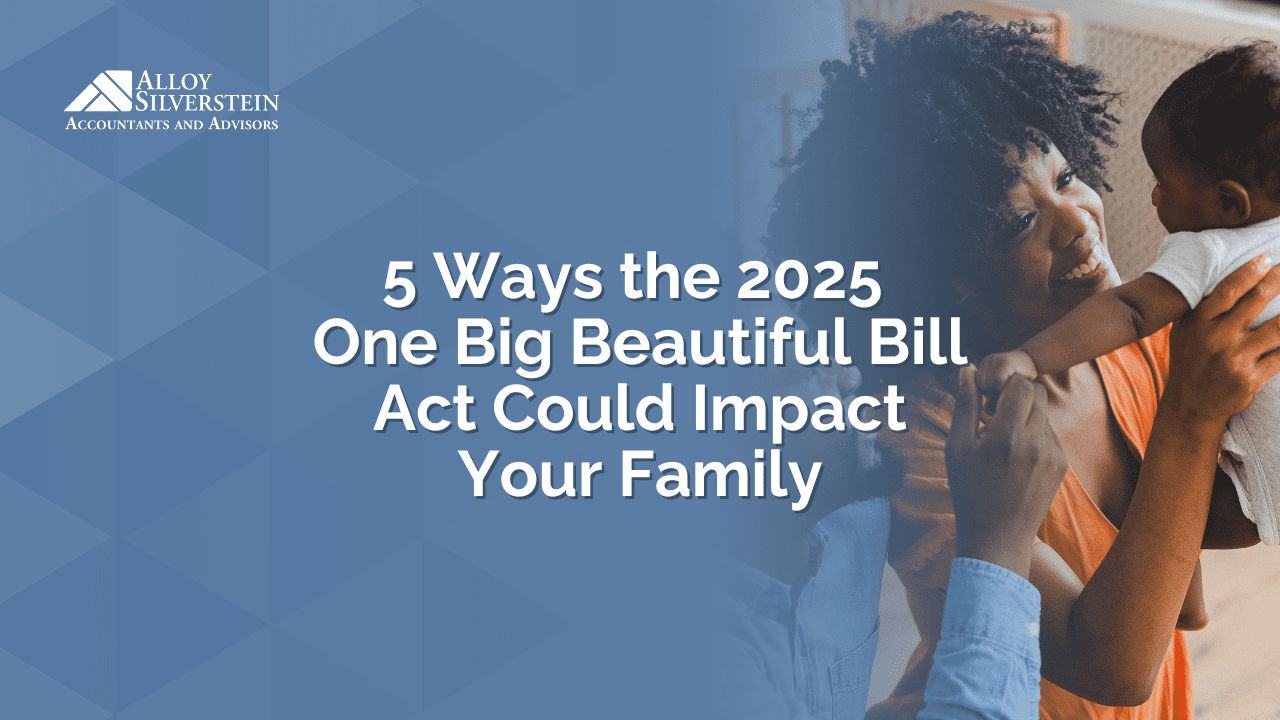
The One Big Beautiful Bill Act of 2025 (OBBBA), has officially arrived, and it’s packed with new tax breaks aimed at helping parents and families. From expanded credits to larger deductions, these changes could mean significant savings for your household. As a parent, we know your time is limited, so here’s a quick look at five key updates you need to know.
Starting in 2025, the Child Tax Credit is permanently increased to $2,200 per child. The refundable portion, known as the Additional Child Tax Credit, will be $1,700 for 2025. Both amounts will be adjusted annually for inflation going forward, providing more consistent support for families year after year.
If you live in a high-tax state, this is big news. The SALT deduction cap, previously limited to $10,000 since 2018, is now raised to $40,000 for 2025, with inflation adjustments through 2028.
However, this higher limit will revert back to $10,000 in 2029 unless Congress takes further action. Income-based phaseouts still apply, but many taxpayers are expected to benefit from itemizing deductions under the new rules.
Beginning in 2026, the maximum Child and Dependent Care Credit percentage will rise from 35% to 50%. While income-based limitations remain, the credit will never drop below 20% for taxpayers with an AGI of $75,000 or less (or $150,000 for joint filers).
This change could mean hundreds, or even thousands, in extra tax savings for qualifying families with dependent care expenses.
The Adoption Tax Credit is increasing in 2025 to $17,280, with $5,000 now refundable. This means eligible families can benefit from the credit even if they owe little or no tax. Like other credits in the bill, the refundable portion will be adjusted annually for inflation.
The definition of “qualified higher education expenses” for 529 plans now includes more elementary and secondary school costs, such as tuition, instructional materials, and educational therapies.
Starting in 2026, the $10,000 cap for elementary and secondary tuition expenses will double to $20,000 per year. Additionally, certain postsecondary credentialing expenses may qualify, provided the credential meets eligibility requirements.
OBBBA opens the door to a variety of tax-saving opportunities for families, but the benefits are greatest when you plan ahead. From taking advantage of new deductions to structuring your education savings, proactive steps now can pay off in the future.
If you have questions or want to create a personalized tax strategy for your family, the team at Alloy Silverstein is here to help. Contact us today.

Associate Partner
Chris provides accounting, tax planning, and consulting services to professional athletes, family entertainment centers, and other businesses in the amusement and hospitality industry. He also aids clients in implementing cloud accounting solutions.
View Chris's Bio → Follow @AthleteCPA on Twitter →